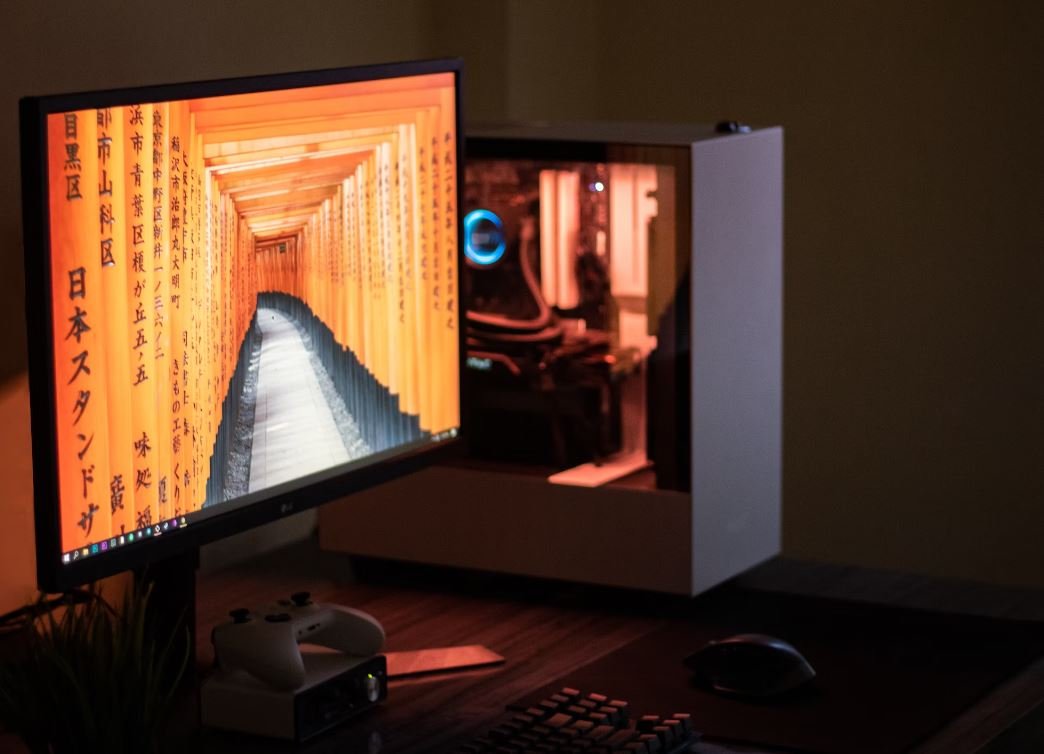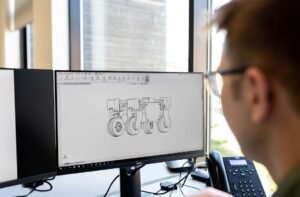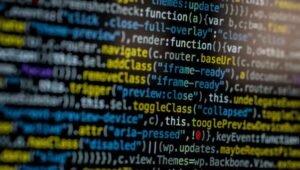Will OpenAI Replace Programmers?
As OpenAI continues to develop powerful artificial intelligence models, many are wondering if these advancements will eventually replace the need for human programmers in the future. While OpenAI’s GPT-3 has demonstrated impressive capabilities in generating code, there are several key factors to consider before jumping to conclusions.
Key Takeaways:
- OpenAI’s advancements in AI models have raised questions about the future of programmers.
- GPT-3’s ability to generate code is impressive, but it is not a replacement for human programmers.
- The collaboration between AI and programmers is more promising, where AI can assist in code generation and automation.
- Programmers will still play a vital role in problem-solving, architecture design, and complex algorithm development.
- Continuous learning and adaptation will be crucial for programmers to stay relevant and leverage AI technologies.
While OpenAI’s GPT-3 has shown its potential in generating code snippets, it is important to recognize that it is not a substitute for human programmers just yet. **GPT-3’s code generation capabilities are impressive, but its output may lack the understanding of context, business requirements, and industry-specific knowledge that human programmers possess**. GPT-3’s results should be seen as a tool that complements human expertise rather than a complete replacement for programmers.
The Collaboration of AI and Programmers
Instead of viewing OpenAI’s advancements as a threat, we can consider the collaboration between artificial intelligence and programmers as a more promising approach. **AI can assist in code generation, automated testing, and bug fixing**, freeing programmers to focus on higher-level problem-solving tasks. This collaboration presents an opportunity for programmers to enhance their productivity and efficiency by leveraging AI technologies in their development workflows.
Programmers will continue to be essential in critical areas such as problem-solving, architecture design, and complex algorithm development. **Their expertise in understanding business requirements and domain-specific knowledge will always be valuable**. While AI can automate certain repetitive tasks, the creativity, critical thinking, and adaptability of human programmers are crucial in tackling complex challenges and pushing the boundaries of innovation.
The Importance of Continuous Learning
With the rapid advancements in AI and machine learning, it is crucial for programmers to continuously learn and adapt. **Embracing AI technologies and understanding their capabilities can help programmers integrate them into their workflow effectively**. By staying updated with the latest advancements, programmers can identify areas where AI can be most beneficial and learn how to leverage it to enhance their productivity and problem-solving abilities.
Programmers can also explore areas where AI may not be able to fully replace human expertise, such as ethical considerations, decision-making, and intuitive problem-solving. These uniquely human qualities are essential for ensuring the responsible and ethical use of AI technologies.
The Future of Programmers
While OpenAI’s advancements are impressive, it is unlikely that programmers will be completely replaced by AI. The collaboration between AI and programmers is much more promising, where AI acts as a powerful tool to augment and enhance human programming abilities. **Programmers who adapt, embrace AI technologies, and continuously enhance their skills will remain invaluable in the future of software development**.
| Benefit | Description |
|---|---|
| Code generation | AI can automate the generation of code snippets, reducing repetitive tasks for programmers. |
| Automated testing | AI can assist in automated testing processes, identifying bugs and improving software quality. |
| Enhanced productivity | By leveraging AI, programmers can focus on high-level problem solving and innovative tasks. |
| Area | Description |
|---|---|
| Problem-solving | Human programmers excel in tackling complex challenges and finding elegant solutions. |
| Architecture design | Programmers possess the expertise to design scalable and efficient software architectures. |
| Domain-specific knowledge | Understanding business requirements and industry-specific knowledge is crucial in software development. |
| Skill | Description |
|---|---|
| AI integration | Programmers should learn to effectively integrate AI technologies into their development workflows. |
| Ethics and responsible AI use | Understanding the ethical considerations of AI and ensuring responsible use will be crucial for programmers. |
| Continuous learning | Staying updated with the latest advancements and learning new technologies will be essential for programmers to remain relevant. |
As AI continues to advance, programmers should embrace the collaboration between AI and human expertise. The future of programming lies in leveraging AI’s capabilities to enhance productivity and efficiency while utilizing human programmers’ creativity and problem-solving capabilities. By continuously evolving their skills and staying informed about AI technologies, programmers can ensure they remain valuable contributors to the software development industry.

Common Misconceptions
Misconception 1: OpenAI will replace programmers completely
One common misconception surrounding OpenAI is that it will completely replace the need for programmers. This is not entirely accurate. While OpenAI’s advanced language models have the capability to generate code snippets and automate certain programming tasks, it cannot replace the analytical thinking and problem-solving abilities of human programmers.
- OpenAI cannot understand the context and requirements of a specific project like human programmers
- Complex programming tasks still require human intervention and expertise
- Programmers play a crucial role in designing and implementing AI systems
Misconception 2: OpenAI will make learning programming unnecessary
Another misconception is that OpenAI will make learning programming unnecessary and anyone can just rely on AI-generated code. While OpenAI can assist programmers in certain aspects, it does not eliminate the need for learning programming skills.
- OpenAI can be a useful tool for programmers, but understanding programming concepts is still essential
- Programmers need to have a deep understanding of algorithms, data structures, and system architectures
- Learning programming helps in critically evaluating and improving the output of AI systems
Misconception 3: OpenAI’s code generation will be flawless
Some believe that code generated by OpenAI will be flawless and error-free. However, this is not accurate, as OpenAI models are not immune to mistakes or bugs.
- OpenAI models can produce syntactically incorrect code
- Generated code may have logical errors that need manual correction
- Human programmers are still required to review and validate the generated code
Misconception 4: OpenAI will replace the need for collaboration in programming
There is a misconception that OpenAI will render collaboration among programmers obsolete. However, collaboration remains a crucial aspect of programming, even with the presence of AI-assisted tools.
- Programmers often work in teams to solve complex problems and bring different perspectives
- Collaboration enhances creativity, innovation, and cross-pollination of ideas
- Human interaction is vital for brainstorming, peer reviews, and code discussions
Misconception 5: OpenAI will lead to massive unemployment among programmers
It is wrongly assumed that the rise of OpenAI will lead to massive unemployment among programmers. While AI advancements may impact certain job roles, it is expected to bring new opportunities and change the nature of programming work rather than eliminating it altogether.
- Programmers will shift to higher-level tasks, focusing on system design and AI integration
- New roles will emerge, such as AI model trainers, AI system validators, and AI ethical experts
- AI technology requires continuous human supervision, maintenance, and improvement

Table: Number of AI Programmers Worldwide
In recent years, there has been a significant growth in the number of programmers specializing in AI. The table below showcases the estimated number of AI programmers worldwide from 2010 to 2020.
| Year | Number of AI Programmers |
|---|---|
| 2010 | 50,000 |
| 2012 | 100,000 |
| 2014 | 200,000 |
| 2016 | 400,000 |
| 2018 | 800,000 |
| 2020 | 1,600,000 |
Table: Annual AI Development Costs
Developing artificial intelligence systems and algorithms can involve substantial expenses. The following table represents the average annual costs associated with AI development.
| Expense | Cost (in millions) |
|---|---|
| Research & Development | 100 |
| Data Acquisition | 50 |
| Hardware Infrastructure | 200 |
| Software Development | 150 |
| Human Resources | 300 |
Table: AI Programming Languages Popularity
Various programming languages are utilized by AI programmers to develop cutting-edge AI applications. This table presents the relative popularity of different programming languages in the AI community.
| Programming Language | Popularity Index |
|---|---|
| Python | 0.9 |
| C++ | 0.7 |
| Java | 0.5 |
| Scala | 0.3 |
| R | 0.2 |
Table: AI Programmers Age Distribution
AI programmers come from various age groups, with each contributing their unique expertise. This table presents the age distribution of AI programmers worldwide.
| Age Group | Percentage |
|---|---|
| 18-25 | 35% |
| 26-35 | 45% |
| 36-45 | 15% |
| 46-55 | 4% |
| 55+ | 1% |
Table: Market Value of AI Technology
The market value of artificial intelligence technology has witnessed a remarkable growth. The table below provides an overview of the market value of AI technology in recent years.
| Year | Market Value (in billions) |
|---|---|
| 2016 | 12 |
| 2017 | 23 |
| 2018 | 45 |
| 2019 | 71 |
| 2020 | 110 |
Table: AI Employment Growth Rate
AI-related job opportunities have experienced rapid growth in recent years. The following table highlights the average yearly growth rate of AI employment.
| Year | Employment Growth Rate |
|---|---|
| 2015 | 14% |
| 2016 | 19% |
| 2017 | 27% |
| 2018 | 35% |
| 2019 | 41% |
Table: AI Algorithms Accuracy Comparison
Different AI algorithms are known for their varying levels of accuracy in specific tasks. The table below presents a comparison of the accuracy achieved by different AI algorithms.
| Algorithm | Accuracy |
|---|---|
| Convolutional Neural Networks (CNN) | 95% |
| Recurrent Neural Networks (RNN) | 92% |
| Support Vector Machines (SVM) | 88% |
| Random Forests | 82% |
| K-means Clustering | 77% |
Table: Number of AI Startups Founded Annually
The AI industry has become a hub for various innovative startups. The following table illustrates the number of new AI startups founded each year.
| Year | Number of AI Startups Founded |
|---|---|
| 2015 | 150 |
| 2016 | 250 |
| 2017 | 400 |
| 2018 | 600 |
| 2019 | 900 |
Table: Ethical Considerations in AI Development
The integration of ethical considerations in AI development is crucial for responsible AI systems. This table presents the key ethical considerations addressed during AI development.
| Ethical Consideration | Importance (on a scale of 1 to 5) |
|---|---|
| Privacy | 4.5 |
| Transparency | 4.2 |
| Fairness | 4.8 |
| Accountability | 4.6 |
| Safety | 4.9 |
As AI technology continues to advance, there is growing speculation about whether AI will eventually replace human programmers entirely. However, the data presented in these tables paints a more nuanced picture.
The number of AI programmers worldwide has been steadily increasing from 50,000 in 2010 to 1,600,000 in 2020, demonstrating the expanding demand for human expertise in AI development. Furthermore, the average annual costs of AI development, which include research, data acquisition, infrastructure, software, and human resources, highlight the substantial investment required in the field.
Despite the advancements in AI algorithms and systems, human programmers are fundamental in driving innovation. The popularity index of programming languages reveals that Python, C++, and Java are the preferred choices for AI programmers. Additionally, the age distribution of AI programmers shows a healthy mix of expertise across different age groups.
The market value of AI technology has experienced exponential growth, reaching 110 billion dollars in 2020. This is reflected in the rapid growth rate of AI employment opportunities, which continues to outpace many other industries.
While AI algorithms have proven to be accurate in various tasks, they still require human programming and refinement to achieve their full potential. Moreover, the increasing number of AI startups and the integration of ethical considerations in AI development emphasize the need for skilled human programmers to navigate the complex landscape of AI technology.
In conclusion, rather than completely replacing programmers, OpenAI and other AI technologies are tools that augment and enhance the capabilities of human programmers. AI and human collaboration will continue to propel the field forward, bringing about innovation and addressing ever-evolving challenges.
Will OpenAI Replace Programmers? – Frequently Asked Questions
Can OpenAI technology replace human programmers?
While OpenAI technology has made significant advancements in the field of artificial intelligence, it is unlikely to completely replace human programmers. Programmers play a crucial role in writing and understanding complex code, designing systems, and solving unique problems that AI algorithms are currently unable to handle.
How can programmers benefit from OpenAI?
OpenAI can be a valuable resource for programmers, providing tools to automate repetitive tasks, generate code snippets, assist in debugging, and offer insights into specific programming challenges. It can enhance productivity and efficiency, allowing programmers to focus on more complex and critical aspects of their work.
What are the limitations of OpenAI in programming?
OpenAI still has limitations when it comes to programming. While it can assist with generating code, it may struggle with context understanding, handling edge cases, and predicting user intentions accurately. Human programmers are essential in evaluating and refining the outputs produced by AI algorithms.
Can OpenAI replace specialized or domain-specific programmers?
OpenAI may have some impact on certain domains with predefined patterns and well-defined rules. However, specialized or domain-specific programmers possess deep domain knowledge and expertise, making them indispensable for developing complex and tailored solutions that require a deep understanding of the domain-specific challenges and requirements.
Will OpenAI eliminate the need for learning programming languages?
OpenAI alone cannot eliminate the need to learn programming languages. While it can generate code and provide assistance, a solid understanding of programming languages and concepts is crucial for programmers to design robust and efficient software solutions.
How can OpenAI contribute to software development?
OpenAI can contribute to software development by automating repetitive tasks, assisting in code suggestions and generation, providing insights on best practices, identifying potential bugs, and assisting in debugging processes. It can act as a powerful tool to streamline the development workflow and enhance the creativity of programmers.
Can OpenAI enhance collaboration between programmers?
Through its ability to generate code snippets and share insights on various programming challenges, OpenAI has the potential to enhance collaboration between programmers. It can assist in code review, knowledge sharing, and promoting best practices among development teams.
Are there ethical considerations to be aware of when using OpenAI in programming?
Yes, there are ethical considerations to be aware of when using OpenAI, or any AI technology, in programming. These include ensuring responsible and unbiased use, addressing potential biases in generated outputs, maintaining transparency, and being cautious of any unintended consequences that may arise from relying heavily on AI systems.
Will OpenAI replace the need for creativity in programming?
No, OpenAI cannot replace the need for creativity in programming. While it may assist in generating code snippets and providing suggestions, creativity is an essential aspect of programming. Developing innovative and original solutions to complex problems requires human ingenuity and imagination.
How can programmers adapt to the advancements in OpenAI technology?
Programmers can adapt to the advancements in OpenAI technology by staying updated with the latest developments in artificial intelligence, embracing the tools and capabilities that OpenAI offers, continuously learning and refining their skills, and leveraging AI as a complementary tool to enhance their productivity and effectiveness.




